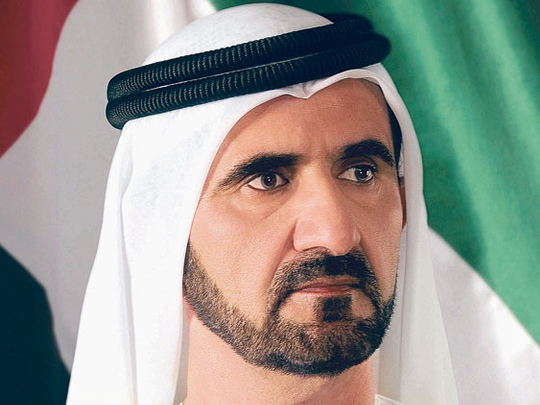
Dubai: The UAE will not join the Gulf currency union anytime soon, unless it proves profitable, His Highness Shaikh Mohammad Bin Rashid Al Maktoum, Vice-President and Prime Minister of the UAE and Ruler of Dubai, reiterated yesterday.
The UAE dirham will remain pegged to the US dollar, he told CNN in an interview. "The euro is in trouble and we thought of the Gulf currency and we said, well the UAE said, ‘not yet'. And I think they are right, until we are sure," Shaikh Mohammad said.
"So therefore, now, we will not change anything for the time being until we see something solid really, and profitable," he added.
Six GCC countries have been in talks since 2001 to de-peg from the dollar and create a single currency. The deadline for the single currency's launch was earlier set for 2010, but talks fell through after Riyadh was selected as the base for the future regional central bank of the GCC currency union.
Currently, four countries are still heading towards the union, with the UAE and Oman opting out of the project. The new date for the European-style shared currency is 2015, which would allow economies to integrate and create a monetary policy independent from that of the United States.
The board of the new monetary council will include central bank governors of Kuwait, Saudi Arabia, Bahrain and Qatar.
Kuwait is the only Gulf state that de-pegged a few years ago and pegged to a basket of currencies.
Analysts in the past have said that a monetary union between the Gulf states would be appropriate as they share industries and have similar economic bases, driven by energy. Also, a de-peg from the dollar would protect the countries from importing inflation.
The euro has taken a tumble since Greece announced a deficit of almost 13 per cent of its GDP and four times higher than Eurozone rules. While a European Union and International Monetary Fund bailout package of 45 billion euros has been approved, talks have spurred new restrictions on lending policies for banks, including Germany's austerity package that has shaken the continent's financial system.
While the dollar has recently been strengthening against the faltering euro on growth outlook, it had been declining due the severe US fiscal deficit. The US trade deficit rose to $40.2 billion in December, the biggest in 12 months, the Commerce Department said.
Meanwhile, the US budget deficit is expected to reach $1.35 trillion this year, according to US Congress estimates.
When asked if the stability of the dollar peg serves the interests of the UAE, Shaikh Mohammad said, "Yes, yes and we still believe in the dollar."
On additional funding necessary to go forward, Shaikh Mohammad said he is not worried about the companies that have undergone debt restructuring, as they have wealth.
"The relationship between Dubai and Abu Dhabi is good as both ruling families are from the same tribe. So we are one family and the UAE is not only Abu Dhabi and Dubai. There are another five emirates and we all look after each other. We are one nation and we are one country and one president."
He said the challenge going forward would be to bring the five other emirates in line with Dubai and Abu Dhabi in terms of development and economic growth.












